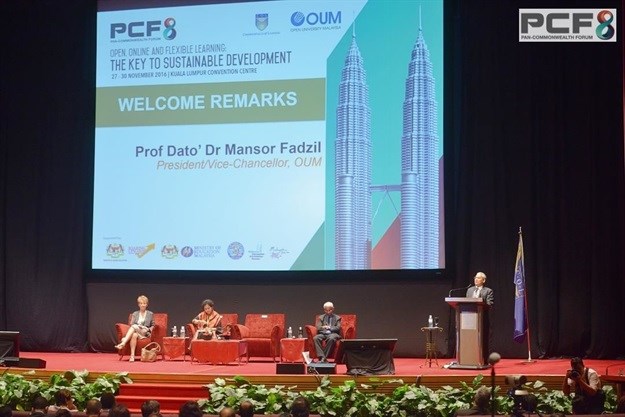
Top stories



Marketing & MediaThe Carling Black Label Cup and the campaign that changed fan engagement
Caxton Media 14 hours



More news






ESG & Sustainability
Kumba Iron Ore champions inclusivity with donation to neurodiverse learners






The itinerary included visits to Wawasan Open University, the Open University of Malaysia and the Malaysian Ministry of Education. The visit revealed that, in many aspects, the Malaysian approach to, and infrastructure for, ODL are more developed and sophisticated than current practices at institutions in South Africa.
Wawasan Open University (WOU) is a private university providing access to quality higher education via open distance learning. ODL is delivered via a Learning Management System (LMS) that uses a Moodle-based, open-source software platform for online delivery of course materials.
WOU’s range of support to students includes face-to-face tutorials; tutor support via telephone and email, access to Open University of Malaysia’s (OUM) e-library; and online discussions/forum with peers, tutors and course coordinators.
Outstanding features of the WOU system are:
Open University Malaysia (OUM)
The OUM targets a wide range of student markets and has a current enrolment of 150,000 students. The university uses face-to-face, distance learning and blended learning modalities, with the system underpinned by myINSPIRE, a Moodle-based LMS, as the primary e-learning platform. While currently relying on blended learning, OUM intends moving to a fully online mode as expanding face-to-face contact is impracticable.
Student support includes extensive use of mobile platforms, particularly WhatsApp, which is used to distribute course information and to teach, using short videos.
Monitoring and evaluation of tutors includes tutors’ performance being actively monitored and online student evaluations of tutors submitted every semester.
Infrastructural support for LTSM development and expansion of myINSPIRE is driven by two units, namely the Centre for Learner Affairs, a communication channel for students regarding administrative matters that operates a digital library, and the Centre of Instructional Design and Technology, which employs 68 staff to develop and expand modules and e-content that include HTML, video lectures, radio broadcasts, audio books and electronic tutorials.
The MOHE’s strategy for broadening access to higher education and improving institutional quality is encompassed in the Malaysia Education Blueprint (MEB) 2015–2025. Among the focus outcomes of the MEB are a nation of lifelong students, quality TVET graduates and globalised online learning.
The MEB promotes the use of technologies for distance learning, particularly the development of Massive Open Online Courses (MOOCs) in subjects of particular relevance to Malaysia, such as Islamic banking and finance; requiring up to 70% of higher education programmes to use blended learning models; and requiring the 20 public universities to each offer three MOOC courses.
For more information about False Bay TVET College Distance Learning programmes, please contact Ms Marian Theron, Distance Learning Manager at 021 701 1153 or visit the False Bay TVET College website www.falsebaycollege.co.za.